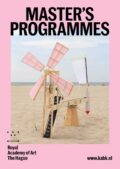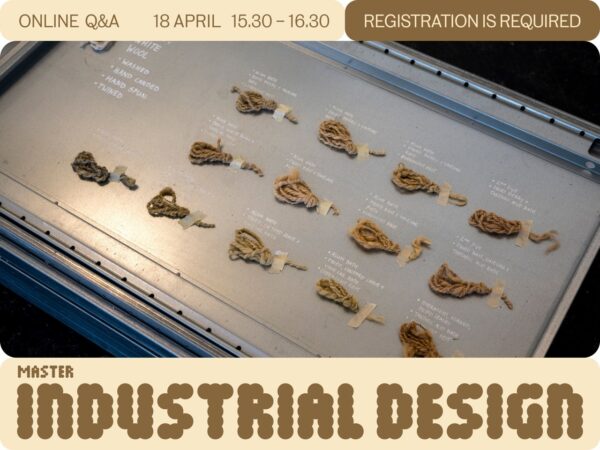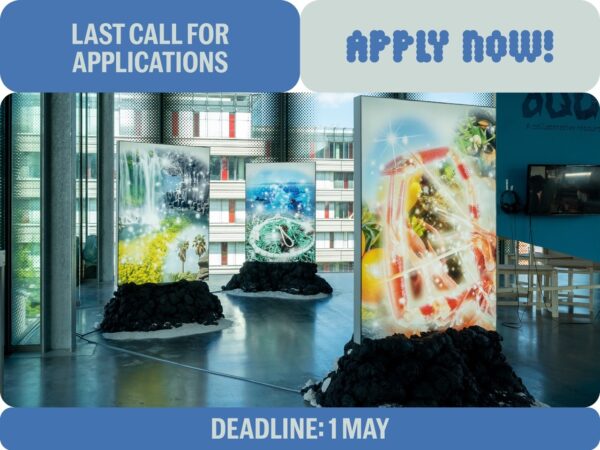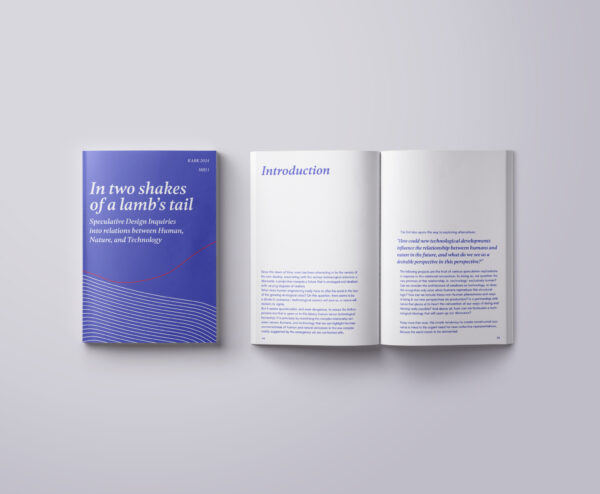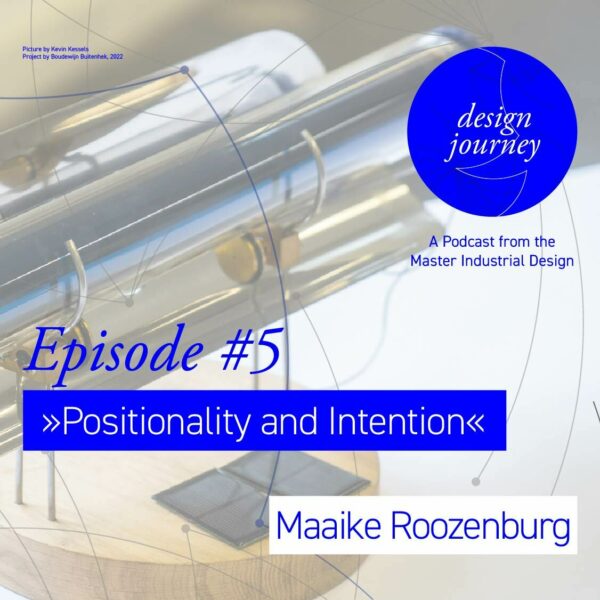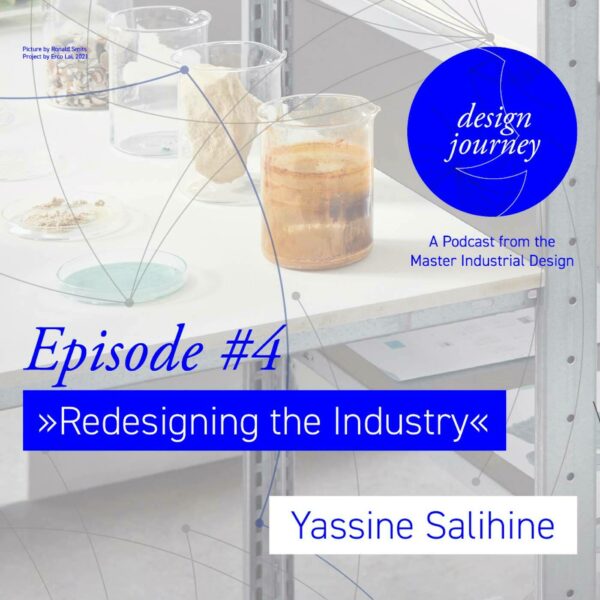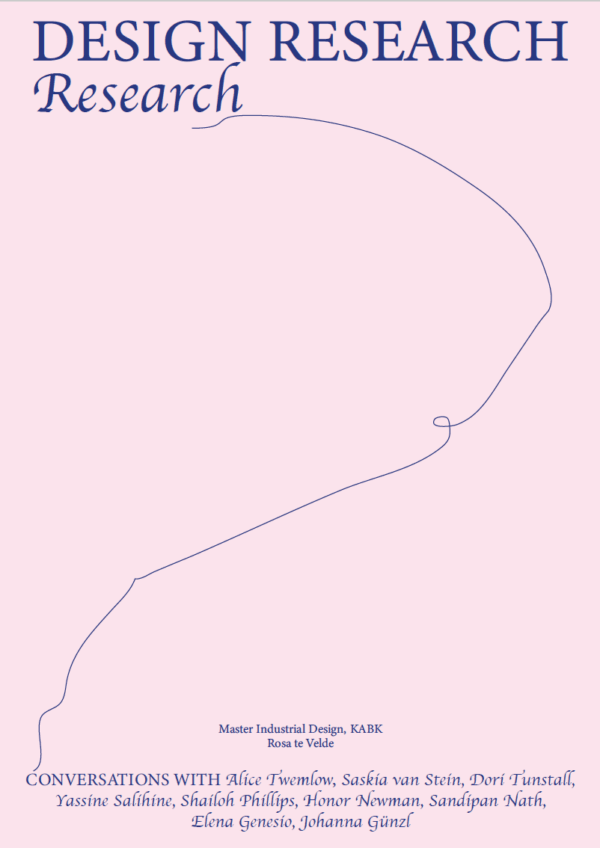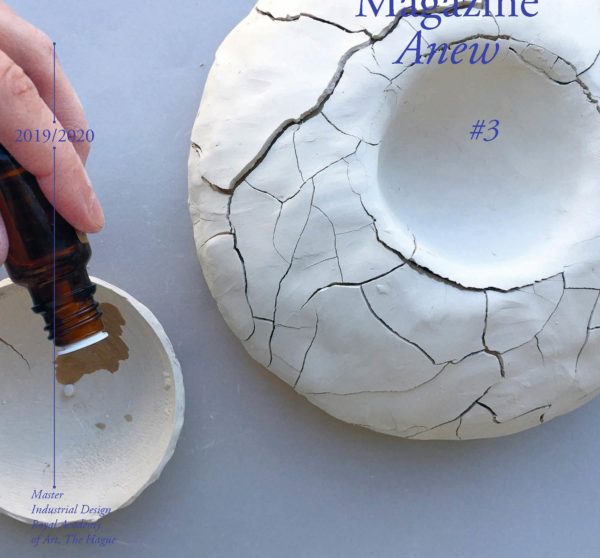Programme description
The Master Industrial Design accepts designers from all disciplines. The programme is constructed as a matrix of practical and theoretical research. Alongside your design projects, you also investigate your interests in design research. You participate in guest lectures and field-trips during which you explore issues and concepts important to the field of design. Each year, you also participate in a public exhibition.
Our integrated approach to design will test the boundaries between your thinking, making, writing and sharing, creating new and surprising outcomes. Reflection on these will come from your teaching team, student peer group, and visiting experts. We are a small department built on trust and care. We place value in peer-learning and intensive group work.
Programme structure
The structure of the programme mirrors the design practice and is therefore project based. Each semester is built around two design projects within the same theme. Within the design projects a variety of working methods and structures are being offered to the designer. In the second year the (research) project will be shaped and structured by the designers themselves. We are aiming to educate designers who have a clear understanding of their own modes of working and the essential framework.
Encircling the design projects are classes in theory, morphology, design research, advanced prototyping and communication. Generating supportive knowledge and skills to implement and augment the design projects. Guest lectures, field trips, workshops and studio visits are woven in the programme to offer an extensive and enriching context.
Courses & ECTS credits 2023-2024
The Master Industrial Design programme amounts to 120 ECTS and lasts two academic years. See below an overview of ECTS credits for the academic year 2023-2024.
| Courses Semester 1 | ECTS |
|---|---|
| Design Project A 1 | 8 |
| Design Project B 1 | 8 |
| Design Research 1 | 6 |
| Design: Theoretical Framework 1 | 6 |
| Design Skills 1 | 2 |
| Total study points per semester | 30 |
| Courses Semester 2 | ECTS |
|---|---|
| Design Project A 2 | 8 |
| Design Project B 2 | 8 |
| Design Research 2 | 6 |
| Design: Theoretical Framework 2 | 6 |
| Design Skills 2 | 2 |
| Collective 2 | 0 |
| Total study points per semester | 30 |
| Courses Semester 1 | ECTS |
|---|---|
| Design Research: Collect | 6 |
| Design Research: Make | 6 |
| Design Research: Curate | 3 |
| Design Research: Connect | 6 |
| Design Research: Story | 9 |
| Collective 3 | 0 |
| Total study points per semester | 30 |
| Courses Semester 2 | ECTS |
|---|---|
| Graduation Project | 30 |
| Total study points per semester | 30 |
Insights in this study programme
Listen to a conversation with Stefan, Industrial Design student as he talks about his experience in this two-year master's programme.
View graduation projects from past years on graduation.kabk.nl

Guiding principles of the programme
We aim to educate designers who show a great awareness of the world around them, or their context. In the 21st century, designers can no longer just design and make things. Our current global situation asks for a generation of designers that are able to question the social and ecological relevance of their projects and understand the context in which they (want to) operate. They explore and express the position the (industrial) designer can take in relation to the industry and the world at large.
The course offers a variety of perspectives, methods and approaches for research, aiming to broaden and deepen the designers research practice and connect it to his/her design practice. It encourages to explore research applying the skills and qualities as designer. Therefore, the programme is designed to encourage the connection and exchange of making and reflecting, collecting and prototyping, writing and sketching, collaborating and peer reviewing. Collectively and in conversation, we aim to “create an educational environment, in which the transformative pleasure of searching, finding things out, experimenting and bringing into relation are central”.
Designers require the ability to work with a wide range of discourses, to engage in dialog about the underpinnings and assumptions at play, and to work with theoretical concepts as tools to reflect on their work, to question their ethical framework, and to communicate about their work with a wide audience. The course offers a issue-based curriculum, with texts from the fields of the philosophy of technology, economics, social design and digital cultures. The aim of reading texts is to cultivate a certain way of thinking, reasoning and questioning with the students, not so much to work on a body of explicit philosophical knowledge. To critically examine a thought process, make it explicit; either in spoken or written word. We practice group dialogue and discussions, site-specific visits, (free, but founded) writing, co-hosting and peer interviewing.
We aim to educate designers who can knowingly tap into their creative potential and apply their design skills within different contexts and media. Grounded in the context of the Royal Academy of Art, the course offers approaches to deepen and build on the artistic vision of the designer. Through workshops and projects, a critical understanding of methods, form, materials and techniques is being expanded. Aiming for an articulated physical design work.
We aim to educate designers who actively seek relevant (interdisciplinary) collaborations. Since designers will most likely not operate solo in the (future) design field, collaborative projects can train them in the role and position they can take. Design often leans heavily on science, art and other forms of knowledge and research. We aim to educate designers who celebrate interdisciplinary cross-pollination. The curriculum is built on collaborative projects with partners outside the institute to connect to ‘the real world’, to urgent topics, recent insights and research and other kinds of knowledge and ways of working. Each semester the content of the program is being developed in close teamwork with partners outside the institute.
We aim to educate designers who are critical, interesting and respectful partners in dialogue with their colleagues, their public and their clients alike. Designers should know how to get their message across; they need to know how to differentiate between different ways of communicating with different audiences and varying forms for different messages and subject matter. The course provides a wide variety of input strengthening the designers’ communicative ability, ranging from spoken and written word to visual and multimedia means.
We aim to educate designers who show openness and resilience and persistence in the face of disappointment, resistance, (conceptual) challenges and critique. There is often no growth without such experiences. We set out to design an educational context in which designers feel safe and challenged to develop themselves (professionally). Offering a learning community in which we perceive students as well as tutoring staff as equal in their learning (ad)venture and openness to share expertise and experience.
Our approach to learning and assessment
The design work you make and present, the discussions you contribute to, and the writing you complete are the ways you will learn. The teaching that supports this progress towards an MA takes seven main forms. These are:
- Regular one-to-one tutorial support with both practice and theory tutors
- Group and peer support are scheduled throughout your study
- Discursive exposure to the work of visiting artists and other specialists. Critical feedback on your own work from these visitors.
- Exposure to a variety of research methods across both science and the humanities. Excursions, workshops and talks with external experts can open up inspiring approaches to design topics.
- Exhibiting, as a finalising stage of research, is explored through public exhibitions. Organising these exhibitions also prepares you professionally through collaboration with external partners.
- Cultural exposure. Group trips expand your knowledge of different artists, resources and situations.
- Assessment. At the end of each semester, your tutors will complete a written assessment of your progress. This will focus on the stated learning goals of the study programme and look back across the semester.
OER 2023-2024
Education and Examination Regulations
You can find information about the regulations and provisions dealing with the organisation of the programme and the assessments and examinations related to it in the Education and Examination Regulations (in Dutch: Onderwijs- en examenregeling; OER)
